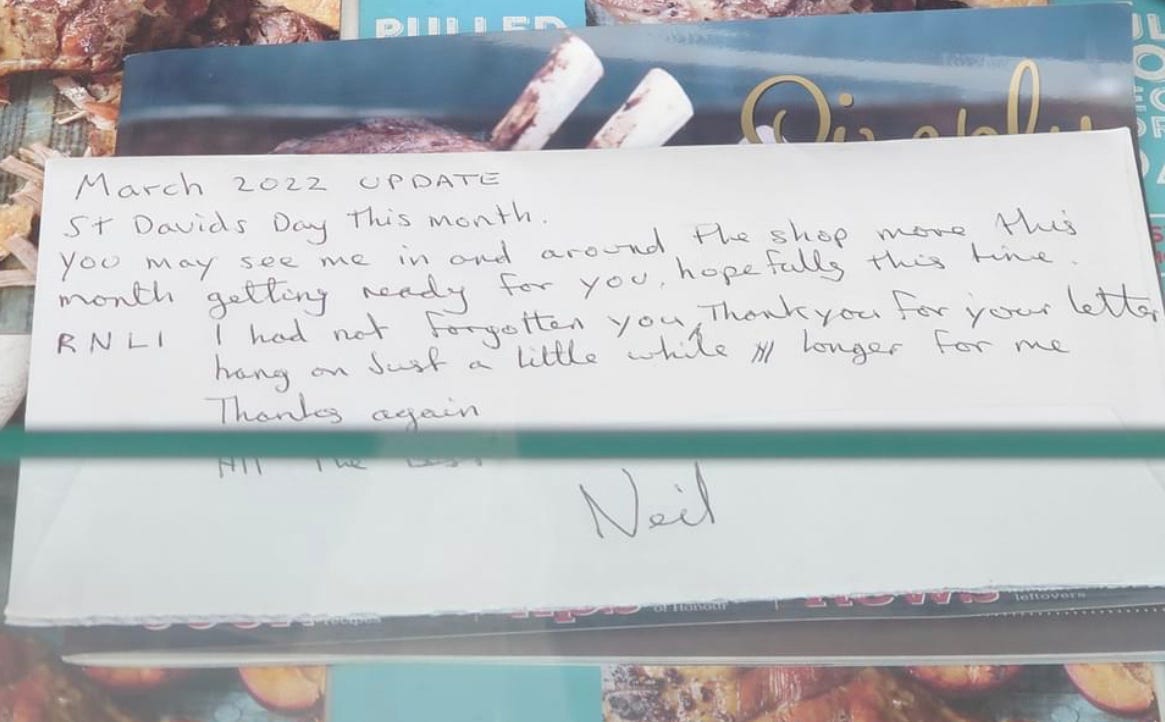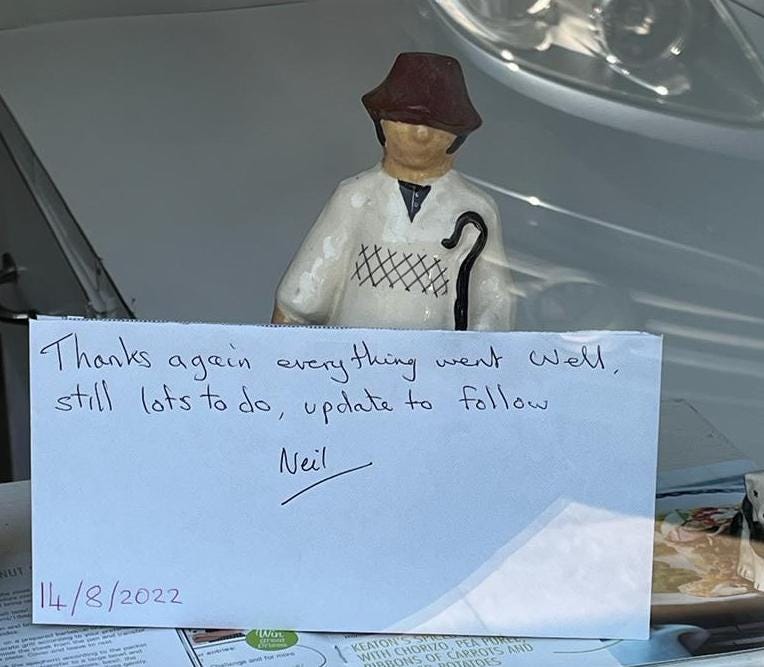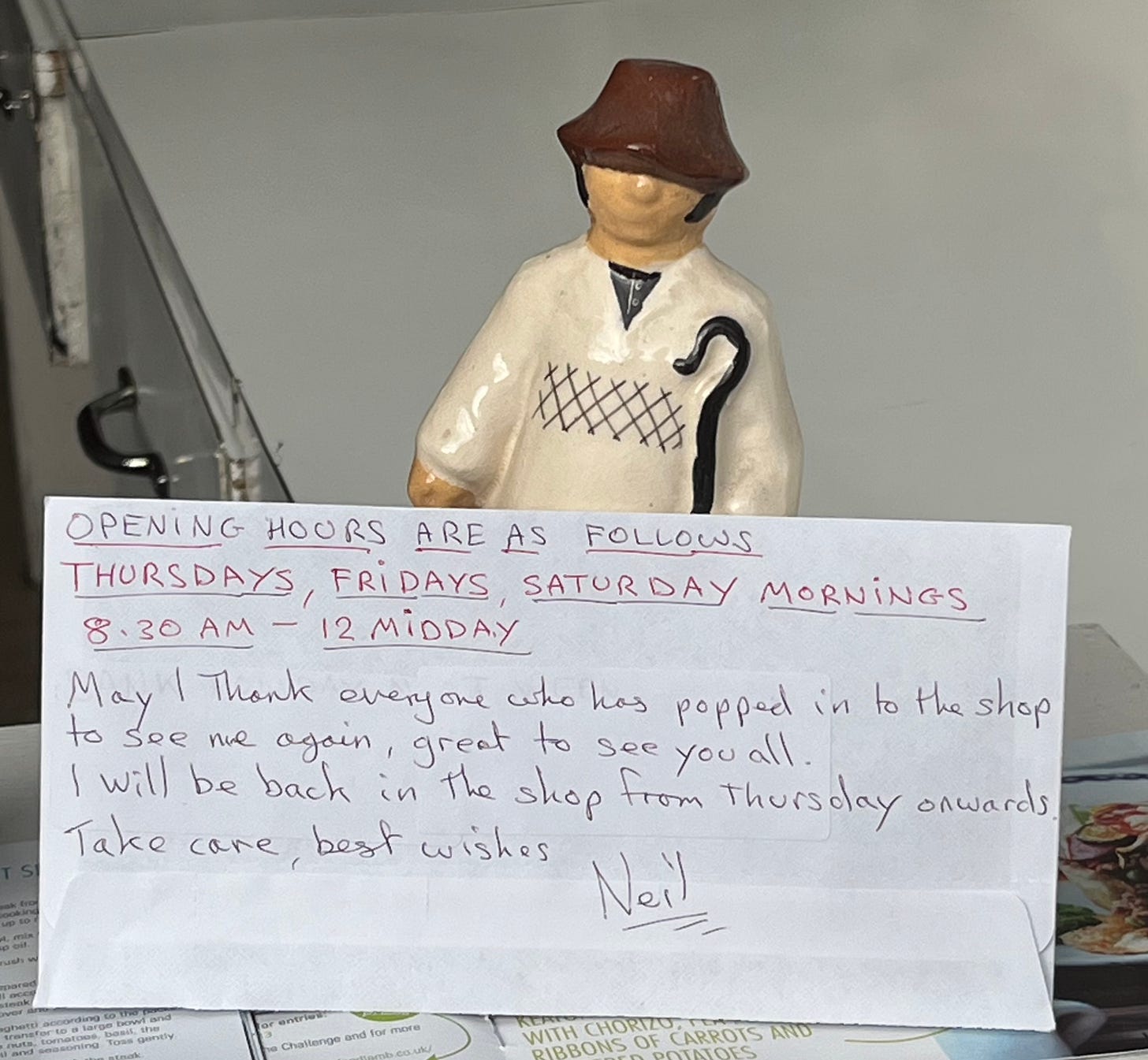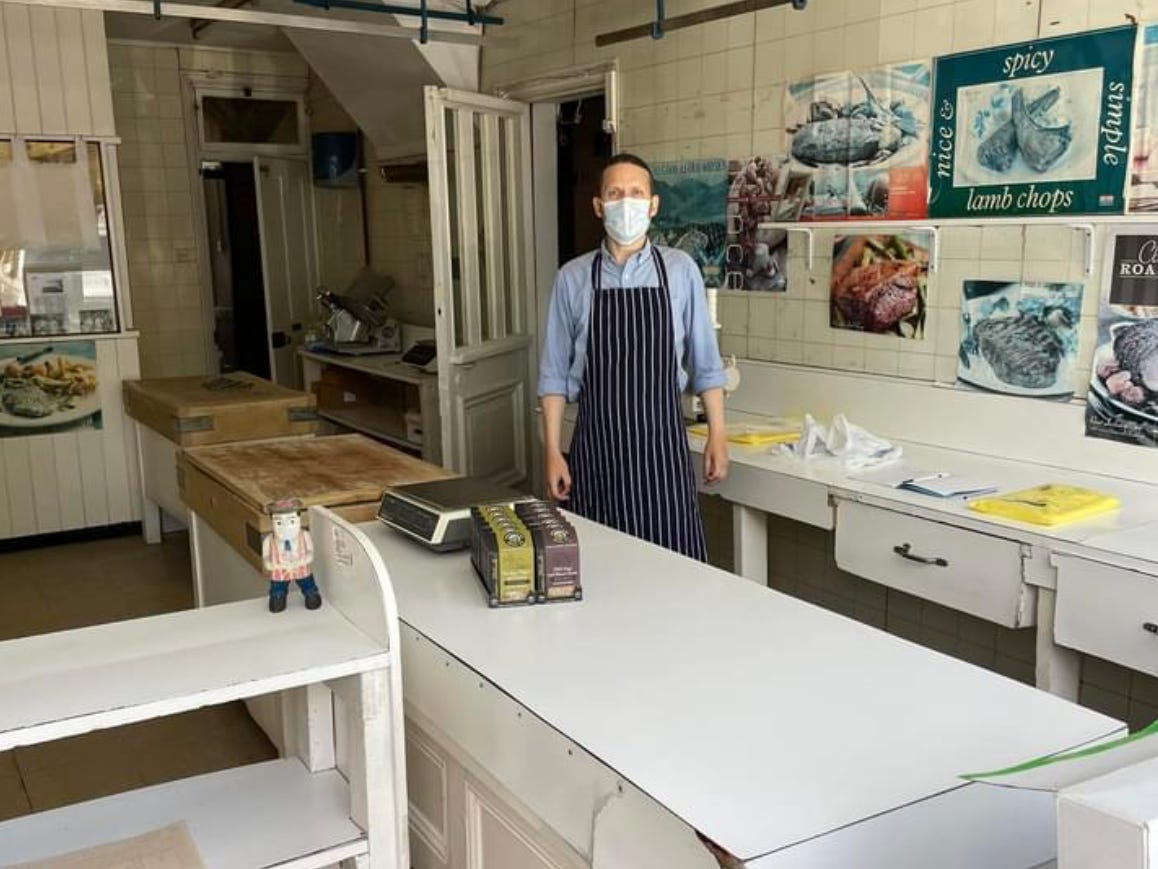You’re reading CX Stories, a newsletter about customer experience innovation. If you want to join the 4000+ lovely people who receive it every month, just enter your email address below.
This is Neil.
For years, he and his Dad have run the local butcher’s shop in my village. They’re both fairly quiet chaps who clearly have a strong relationship, and really care about what they do.
In 2020, Neil’s father passed away from Covid. A small ‘closed’ sign appeared on the door, and we didn’t hear anything more.
It’s a slightly ramshackle, slightly rundown place. The posters are old, the signs are handwritten. You never really know what meat they have available, as the displays haven’t been ‘visually merchandised’ by a marketing expert. I think it might even be cash only.
And everyone loves it.
Every now and then, someone would post on the local Facebook group asking if anyone had heard any news about Neil, or if the shop was going to reopen. There were a few rumours, but nothing definite.
And then, small signs started to appear in the doorway. Nearly two years later, Neil felt ready to try and reopen the shop on his own.

The notes he wrote were always of thanks to the people who had given him support, for the cards people had put through the door, for the offers of help to get him back in the shop.
He started running test days, opening one or two days a week to see if he could manage it ok and if customers would come back, always writing a new note to update everyone with the progress.

Then at the end of August, he announced the shop was reopening on set days each week. Customers came flocking back.

There’s a lot I love about this story.
I love the real, visceral human emotion, with Neil being open and transparent about his feelings and struggles.
I love the simple, clear communication. No branded letters, no printed materials, no mass-email campaigns to customers whose details he’s collected via covert methods. Just hand-written notes on the back of old envelopes put in the window of the shop.
And I love the customer reaction. We often talk about companies supporting customers when they’re in need, but it’s rare you see a situation where customers are supporting the company. (For all the sadness about the demise of Woolworths, I don’t remember people queueing outside to stock up on pix n’mix in an attempt to save the business.)
More than anything, this story shows the impact of individuals
It’s very hard to be truly loyal to a company – my views on the myth of loyalty are well known – but it’s far easier to be loyal to a person, an individual you feel a deep connection with.
That’s why when most people are asked to talk about a great recent customer experience, they nearly always still mention one that involves a person. This week alone I’ve heard about a consultant in a beauty shop who really took the time to listen, a helpful banker who stayed on the phone to sort out a complex Mortgage issue, and a customer service rep who gave great advice (with great enthusiasm) on which theatre tickets to buy.
Despite this, many organisations have spent the last twenty years stripping away their human USPs, hiding them from sight, making them near-impossible to speak to, and tying them in a procedural straitjacket, so if a customer should somehow find a way to speak to them, they’re only allowed to respond in a robotic, scripted way.
In doing this, organisations have commoditised themselves at a time when it’s easier than ever to switch providers, alienating customers and colleagues alike, and often leaving their staff to face the wrath of increasingly infuriated customers. The role of the Social Media Manager, once vaunted as new and exciting, is now simply a battering ram put in place to protect senior leaders, acting as a cathartic echo-chamber for customers at a loss with the service they’re being given.
Whilst it’s right to use all the technology we have available to create simpler, more efficient experiences, we shouldn’t forget the role that real people can play in creating special moments, forming genuine relationships, and building trust.
Great customer experience doesn’t rely on polished emails or perfect processes (no one is recommending a company because their monthly newsletter looks nice). As Neil’s story shows, it depends on humanity, honesty and authenticity.
And a tiny model shepherd doesn’t hurt, either.
Thanks for reading this article, I really hope you enjoyed it. You can subscribe to my monthly newsletter below, and find me in tweet form @johnjsills, in picture form on Instagram @johnjsills, or in work mode at The Foundation or on LinkedIn.

